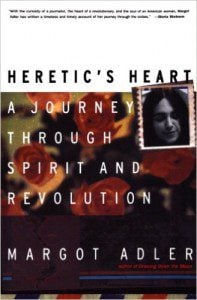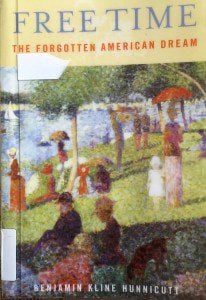Note: This sermon is part of a Lenten study of Joyce Rockwood Hudson’s book Natural Spirituality: Recovering the Wisdom Tradition in Christianity. Links to the previous installments in this series on “Jungian Spirituality” will be included at the end of each post.
21 I learned both what is secret and what is manifest, 22 for wisdom, the fashioner of all things, taught me. There is in her a spirit that is intelligent, holy, unique, manifold, subtle, mobile, clear, unpolluted, distinct, invulnerable, loving the good, keen, irresistible, 23 beneficent, humane, steadfast, sure, free from anxiety, all-powerful, overseeing all, and penetrating through all spirits that are intelligent, pure, and altogether subtle. 24 For wisdom is more mobile than any motion; because of her pureness she pervades and penetrates all things. 25 For she is a breath of the power of God, and a pure emanation of the glory of the Almighty; therefore nothing defiled gains entrance into her. 26 For she is a reflection of eternal light, a spotless mirror of the working of God, and an image of God’s goodness. 27 Although she is but one, she can do all things, and while remaining in herself, she renews all things; in every generation she passes into holy souls and makes them friends of God, and prophets; 28 for God loves nothing so much as the person who lives with wisdom. 29 She is more beautiful than the sun, and excels every constellation of the stars. Compared with the light she is found to be superior.
Wisdom 7:21-29
In June 2005 in a New York City park, Billy Graham preached the final sermon of his final crusade. He was 86 years-old. I last attended a Billy Graham crusade my freshman year in college as a part of a field trip of the Baptist Student Union. That outing was before I started asking too many hard questions to feel welcome at B.S.U. I had seen Graham preach a few times previously, but this final time is etched in my memory. As I continue the story, I think you’ll see why that afternoon was so memorable.
It was a cold, dark day with a persistent drizzle. We wore coats and huddled under umbrellas to keep warm and dry as we waited on hard stadium seats for the man of the hour to take the stage. We had arrived early to be sure of getting a seat, and finally we saw a white golf cart puttering across the empty football field toward the stage. Graham sat under a canopy as a representative introduced him, although he needed no introduction. The representative held a large umbrella to shield himself from the rain. He then turned around to escort Rev. Graham to the pulpit, and, I suspect, to hold the umbrella for him as he preached. As it turned out, there was no need. As Billy Graham stood — I kid you not — the clouds parted, sunlight streamed onto the stage, and the rain stopped.
I remember looking up, exchanging astonished glances with my friends, and thinking, “Did that really just happen?” Rev. Graham’s assistant must have been thinking the same thing because he looked up in confusion at the sky, then closed his umbrella, and had a seat. What I want to invite us to consider this morning is how we can begin exploring the question, “Was that unexpected weather pattern a mere coincidence or some form of what Carl Jung would call a synchronicity, a ‘meaningful coincidence?’”
~~~~
Last week I shared with you a story from the life of Joyce Rockwood Hudson, the author of our Lenten book Natural Spirituality: Recovering the Wisdom Tradition in Christianity. Many of you will recall that one of Joyce’s longtime friends was tragically killed the day after having a unexpected reconciliation with her mother. This breakthrough was triggered when the two of them watched the film Terms of Endearment, which had highly resonate parallels to the mother and daughter’s actual life. Indeed, in the wake of the daughter’s death, the film had far more parallels than either could have consciously know in advance. In addition, even though Joyce was miles away from the hospital when her friend died, at that precise moment, Joyce suddenly saw an image of her friend’s obituary and knew with intuitive certainty that her friend had passed. Her husband called at the same time with news confirming her intuition.
Was it merely coincidental that Joyce’s friend and her mother went to see that particular film, triggering a rapprochement on the day immediately before Joyce’s friend’s death? Was it merely coincidental that Joyce had a vision of her friend’s death at the precise moment her friend died, even though she was miles away? Was it merely coincidental that the clouds parted and rain stopped — and stayed stopped — at the precise moment that Billy Graham stood to exit the canopy and walk to the pulpit? Or were these synchronicities (“meaningful coincidences”)?
What if I told you that reporter Noah Brooks, a close friend of President Abraham Lincoln, wrote that on March 4, 1865 (the day of Lincoln’s Second Inaugural Address) was a cold, dreary, drizzling day, similar to the one I described earlier when I went to hear Billy Graham preach. As Lincoln stepped onto the platform, the rain stopped. Brooks wrote, “As he advanced from his seat…. Just at that moment the sun, obscured all day, burst forth in its unclouded meridian splendor and flooded the spectacle with glory and light.” Afterward Lincoln remarked to his friend, “Did you notice that sunburst? It made my heart jump” (64).
~~~~
As we wade deeper into the waters of archetypes, the personal unconscious, and the collective unconscious, allow me to reiterate from last week that we should be extraordinarily cautious about attributing causation to God and meaning to events. And I am, by no means, promoting the overly-simplistic canard that “everything happens for a reason.”
Some of you will recall that about a month ago I preached a sermon on “The Gospel According to Process-Relational Theology.” There is not time this morning to rehash all the details of that sermon here. But one of the most important invitations was to consider the evidence that God acts through persuasion, not coercion. God steadfastly lures and prompts us toward justice, beauty, and creativity. But we are free to choose in each new present moment whether to partner with God or not. And both we and God must live with the consequences of our decisions. Archbishop Desmond Tutu has similarly said that, “God, without us, will not; as we, without God, cannot”
In contrast to this more progressive Christian perspective, headlines blared this past week with some Christian leaders preaching an understanding of how God works in the world that is, to me, both harmful and offensive. Pat Robertson, the infamous host of Christian Broadcasting Network’s The 700 Club, said, regarding the devastating tornados that ripped through the Midwest last week that, “If enough people were praying, [God] would’ve intervened. You could pray, Jesus stilled the storm, you can still storms.” In a similar vein, the popular Minnesota pastor and author John Piper blogged this past week that, “We do not ascribe such independent power to Mother Nature or to the devil. God alone has the last say where and how the wind blows. If a tornado twists at 175 miles an hour and stays on the ground like a massive lawnmower for 50 miles, God gave the command.”
So, whether we are talking about the meaning and cause of tornados or the spooky timing of clouds parting and rain stopping, please know that I speak to you with a heavy dose of trepidation about distinguishing between “meaningful coincidences” and “mere coincidence” because I am all too aware of how much bad theology is out there on TV, in books, on the radio, and on the Internet.
~~~~
In opposition to Robertson and Piper and in light of both Process-Relational Theology and Jungian Spirituality, I would invite you to consider that God did not cause the tornados to hit some houses, harm some people, and spare others. The damage from the storms is a mere coincidence based on weather patterns.
God acts through persuasion, not coercion. Accordingly, one explanation for the clouds parting and rain stopping for President Lincoln and Rev. Graham is perhaps that either those men or some combination of their aides were somehow attuned to the collective unconscious. In ways that we cannot fully explain scientifically or fully experience with our five senses or the conscious mind, there was a confluence of impressions and intuitions from the Collective Unconscious that resulted in those men standing up and walking forward at precisely the time that the weather pattern was changing. I am not saying that the Collective Unconscious controls the weather; rather, that we perhaps sometimes have intuitive, unconscious grasps of much more than our conscious minds are aware of.
~~~~
To begin to address how we can experiment in our own lives about whether any of these claims are true, many of you are likely familiar with the difference between the right- and left-side of the brain. I don’t want to overstate this division, but there does seem to be some truth that certain parts of our brain (traditionally the “left-side of the brain”) are more associated with language; rational thought; and logical/sequential/deductive order. The left-side of the brain is also more detail- and time-oriented. In contrast the “right-side of the brain” is more visual, intuitive, and present-oriented. As you can perhaps guess, the conscious mind is more related to the linguistic, rational, and sequential left-side of the brain. But when we engage in activities such as free-association, day dreaming, or creating art our personal unconscious and the Collective Unconscious can mire readily manifest.
Have you ever had a breakthrough inspiration when you were doing a ‘mindless’ activity such as cleaning, cooking a dish you’ve made a thousand times, exercising, showering, or even going to the bathroom? Because your conscious mind and left-side of the brain are often on auto-pilot in such activities, your right-sided, creative aspect has a better chance of emerging. Similarly, when you are asleep, your conscious mind and “left-side of the brain” are more powered down, which is why our dreams come to us, for the most part, not through the clear-language, deductive, logic of the left brain, but through the symbolic, intuitive metaphors in which the right brain specializes. So perhaps while all those many aides of President Lincoln and Rev. Graham were hurriedly carrying out the thousand details related to yet-one-more-speech, their unconscious was conspiring to have the timing work out precisely with coming a break in the weather. Notice that this scenario does not require or allow for any supernatural control of the weather. Rather, you are invited to consider if we sometimes unconsciously have access to additional level of reality that our conscious minds cannot typically perceive.
To be honest, I don’t know one way or another with certainty. But I do know that for myself, for Joyce Rockwood Hudson, for Carl Jung, and for many others, the more you open yourself to noticing and learning from synchronicities during the day and your dreams at night, the more you find yourself with breakthrough insights into how to grow and journey toward greater spiritual maturity and personal wholeness.
In the contemplative silence to follow, I invite to you be open to what these stories and possibilities may have stirred up within you. Do any memories of synchronicities or dreams emerge from your unconscious?
In the coming weeks, I invite you to be open and attentive to unexpected patterns in your life, meaningful coincidences, and your dreams. You may be surprised what you notice.
For now, I invite you to be still and listen….
Resources on Jungian Spirituality
- Sara Corbett, “Carl Jung and the Holy Grail of the Unconscious,” The New York Times (September 16, 2009). Available at https://www.nytimes.com/2009/09/20/magazine/20jung-t.html?pagewanted=all.
- Carl Jung, Memories, Dreams, Reflections — Jung’s autobiography is arguably the best, most accessible entry point into his writings, which can be difficult to read.
- Seedwork.org: a website filled with practical tools for listening to God’s Wisdom in many forms, including dream work, deep prayer, and meditation. Originally created under the auspices of the Episcopal Diocese of Arkansas. A primary site for gaining information about the expanding field of inner journey.
- See the final section on “Shadow Work” in my sermon “Companions in the Holy Adventure.” Available at: http://broadviewchurch.net/2011/03/sermon-companions-in-the-holy-adventure/.
For Further Study
- “Living the (Hardest) Questions: What If God Is Not ‘Fully and Unambiguously Good?’: A Process Theology Sermon.” Available at: http://www.patheos.com/blogs/carlgregg/2011/11/living-the-hardest-questions-what-if-god-is-not-“fully-and-unambiguously-good”-a-process-theology-sermon/. An excerpt: “‘What is the character of your God?’ At a certain point of spiritual development, deconstruction (saying what you reject, what you doubt, and what you disbelieve) is easier than construction (saying what you affirm, what you have faith in, and what you believe). My challenge to myself and to you is to live the (hardest) questions. Some people speak of this practice as leaning into your ‘growing edge.’ And this image of leaning into your growing edge resonates with the image/character of God I feel called to explore: an evolving, mysterious, and relational ‘God-in-process.’ Or perhaps God is prompting you to reflect on something completely different. As you look within yourself and reflect on the state of our world, how is God prompting you to live that question that is, for you, the hardest question?”
- David Ray Griffin, Reenchantment without Supernaturalism: A Process Philosophy of Religion(Cornell Studies in the Philosophy of Religion).
Previous Sermons in this Series on “Jungian Spirituality for Lent”
- “Confronting the Unconscious: from Supernatural to Natural Spirituality” (Lent 1). Available at http://www.patheos.com/blogs/carlgregg/2012/03/confronting-the-unconscious-from-supernatural-to-natural-spirituality/. An excerpt: “We have to be extraordinarily careful about attributing causation to God and meaning to events. In particular, I am, by no means, promoting a variation of the harmful canard that “everything happens for a reason.” But, at least for Joyce Rockwood Hudson, calling these two events “mere coincidences” did not adequately explain the powerful impressiveness of her personal experience. She increasingly had eyes to see and ears to hear “very personal and specific meaning” in events that would have previously seemed coincidental, random, and generic. In Jungian terms, Joyce was experiencing a “confrontation with the unconscious.” And when she examined these resonances between the inner and outer world, she found guidance, insight, and encouragement on her journey toward spiritual growth and greater wholeness.”
Notes
1 Joyce Rockwood Hudson, the author of our focal book, is the founder and director of the Natural Spirituality Program at Emmanuel Episcopal Church in Athens, Georgia. According to one reviewer, she takes the insights of Carl Jung’s (1875–1961) writings “out of the professional world of the analyst’s office into the everyday world of the laity in the local church. The book offers serious Christians in every community an opportunity to embark on the spiritual path of individuation. With clarity and simplicity Joyce Hudson puts into her reader’s hands the tools for inner work that Jung offered to Christianity. She then goes beyond Jung to present original models of masculine and feminine wholeness.”
2 Wisdom — also known as “The Book of the Wisdom of Solomon” is part of the Christian canon known as the Apocrypha, often printed in a separate section between the “Old Testament” (or “Hebrew Scriptures”) and “New Testament.”
3 “The Gospel According to Process-Relational Theology” — Available at http://www.patheos.com/blogs/carlgregg/2012/02/the-gospel-according-to-process-relational-theology/. Related to the organic nature of how God operates through persuasion, not coercion, Richard Rohr has written that, “God’s one-of-a-kind job description is that God actually uses our problems to lead us to the full solution. God is the perfect Recycler, and in the economy of grace, nothing is wasted, not even our worst sins and our most stupid mistakes” (A Lever and a Place to Stand: The Contemplative Stance, The Active Prayer, 39, 42).
4 Tutu is quoted in John Dominic Crossan’s new book The Power of Parable: How Fiction by Jesus Became Fiction about Jesus, 245.
The Rev. Carl Gregg is the pastor of Broadview Church in Chesapeake Beach, Maryland. Follow him on Facebook (facebook.com/carlgregg) and Twitter (@carlgregg).












